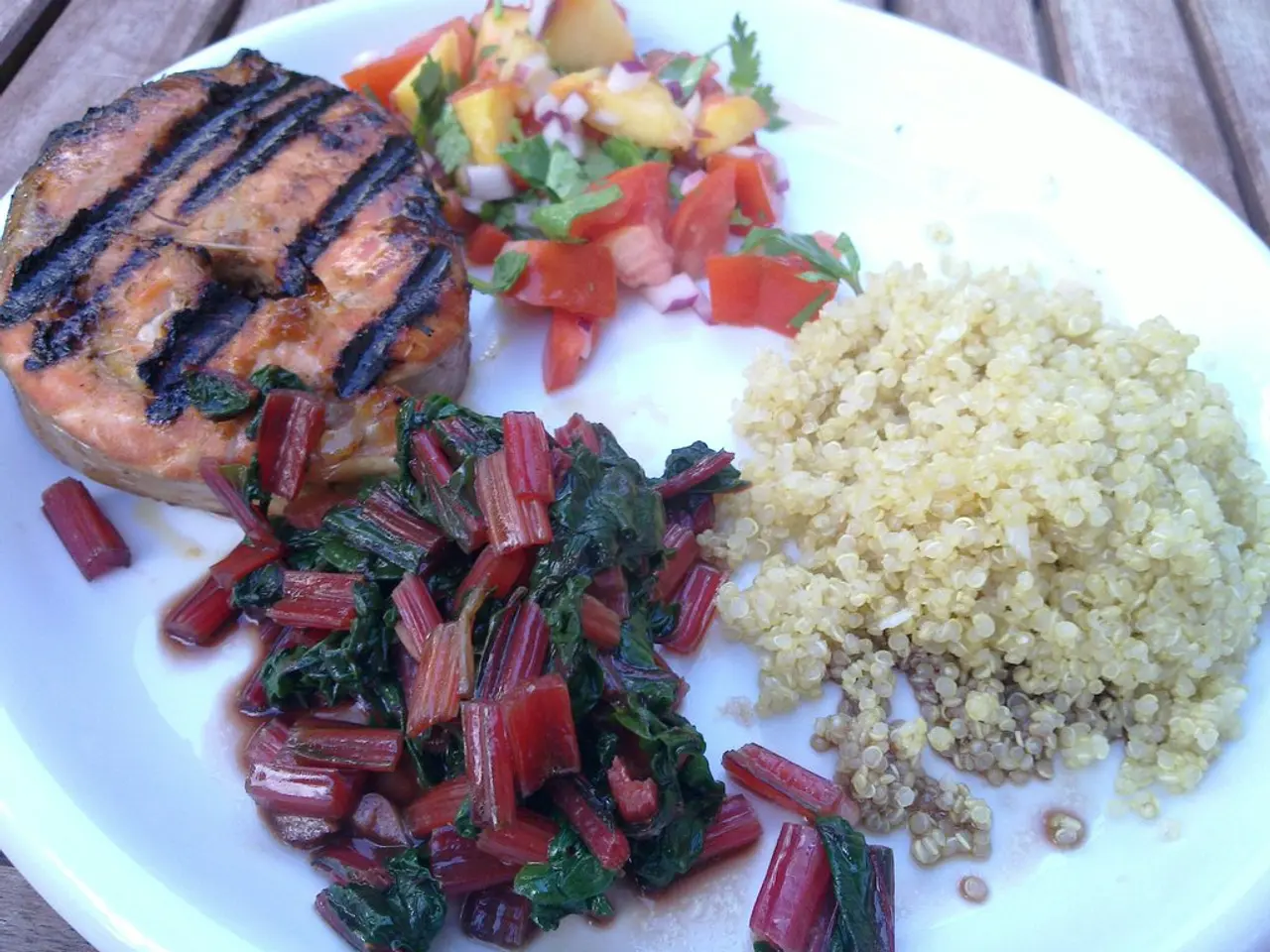Diet for Gallbladder: Recommended and Prohibited Foods
A growing body of research suggests that diet plays a significant role in maintaining a healthy gallbladder and reducing the risk of gallstones. According to a 2021 study and other dietary guidelines, here are some recommended foods for maintaining a healthy gallbladder:
1. **Minimally processed foods (MPF)** such as whole fruits, vegetables, whole grains, nuts, and legumes. These foods are high in fiber and nutrients, which help reduce obesity – a key risk factor for gallstones – and may directly protect against gallstone formation independent of body weight.
2. **Foods rich in vitamins B6, niacin (B3), and vitamin E.** These vitamins have been associated with a lower risk of gallstones. Specifically, increased dietary intake of niacin showed a consistent protective effect even after adjusting for other factors.
3. **Lean proteins** like fish, poultry, and lean cuts of meat, which support liver and gallbladder health. Fatty cuts of meat are typically advised against to reduce fat intake.
4. **Cooked vegetables without skins or seeds** (e.g., peeled potatoes, carrots, squash) help ease digestion and reduce gallbladder stress, which is especially important in sensitive digestive conditions and may be beneficial for gallbladder health.
5. **Foods high in vitamin K**, such as leafy greens (kale, spinach, collard greens, Brussels sprouts, broccoli) and avocados, while not directly linked to gallbladder health in the specific cited studies, are generally beneficial for overall liver and metabolic function, which supports gallbladder health indirectly.
On the other hand, foods to limit or avoid for gallbladder health typically include:
1. **Ultra-processed foods (UPF)** that are energy-dense, high in added sugars and unhealthy fats, which promote obesity and increase gallstone risk.
2. **Fatty cuts of meat and high-fat foods** that can overwork the gallbladder and increase gallstone formation risk.
It's also important to note that consuming Epsom salts, olive oil, and lemon juice as part of a gallbladder cleanse, flush, or detox is not supported by evidence and may be dangerous. Additionally, foods high in saturated fat, fructose, or refined sugars should be limited to reduce the risk of gallbladder disease or gallstones.
In summary, a diet emphasizing minimally processed, high-fiber plant foods, lean proteins, and adequate intake of certain vitamins (particularly B6, niacin, and vitamin E) while reducing processed and high-fat foods is recommended to maintain a healthy gallbladder and reduce gallstone risk. Foods rich in vitamin C may help protect the gallbladder, though more research is necessary to determine the full extent of this protection.
- A bipolar approach to food consumption, involving minimally processed foods (MPF) and a reduction of ultra-processed foods (UPF), could significantly impact gallbladder health.
- Whole fruits, vegetables, whole grains, nuts, and legumes, being high in fiber and various nutrients, can reduce the risk of obesity, a key factor for gallstones, and may protect against gallstone formation.
- Foods rich in vitamins B6, niacin (B3), and vitamin E have been associated with a lower risk of gallstones, with increased niacin intake showing a protective effect even after adjusting for other factors.
- Lean proteins like fish, poultry, and lean cuts of meat support liver and gallbladder health, while fatty cuts of meat are typically advised against due to increased fat intake.
- Cooked vegetables without skins or seeds help ease digestion and reduce gallbladder stress, which benefits gallbladder health, particularly in sensitive digestive conditions.
- Foods high in vitamin K, such as leafy greens and avocados, may indirectly support gallbladder health by improving overall liver and metabolic function.
- On the contrast, foods to limit or avoid for gallbladder health include ultra-processed foods that promote obesity and increase gallstone risk, as well as fatty cuts of meat and high-fat foods that can overwork the gallbladder and increase gallstone formation risk.
- Consuming Epsom salts, olive oil, and lemon juice as part of a gallbladder cleanse, flush, or detox is not supported by evidence and may be dangerous.
- Saturated fat, fructose, or refined sugars should be limited in one's diet to reduce the risk of gallbladder disease or gallstones.
- A diet emphasizing multiple diet types, including plant-based diets rich in fiber, lean protein diets, and adequate vitamin intake (particularly B6, niacin, and vitamin E) can play a significant role in maintaining a healthy gallbladder and reducing gallstone risk.
- Some research suggests that foods rich in vitamin C may possibly offer protection to the gallbladder, though more research is necessary to fully understand its impact.
- The predictive value of dietary guidelines, based on multiple diet types and specific nutrients, in maintaining mental health, health-and-wellness, fitness-and-exercise, and overall nutrition cannot be understated, as they extend beyond just gallbladder health.




